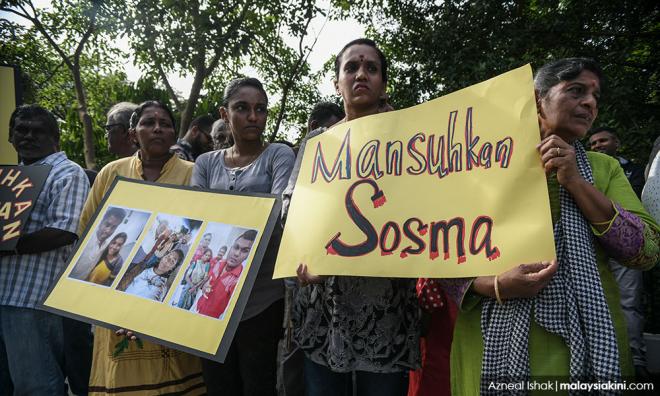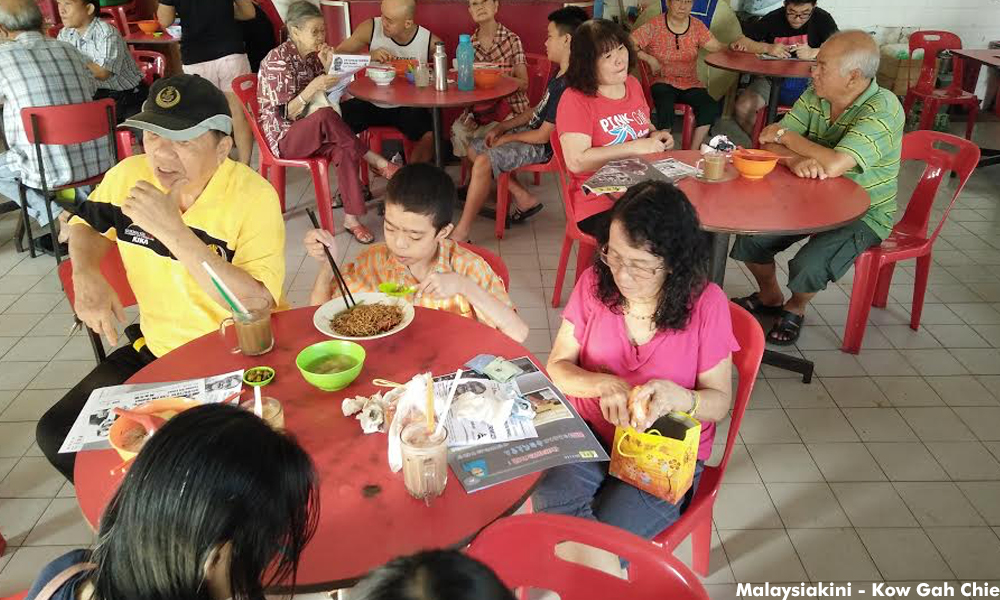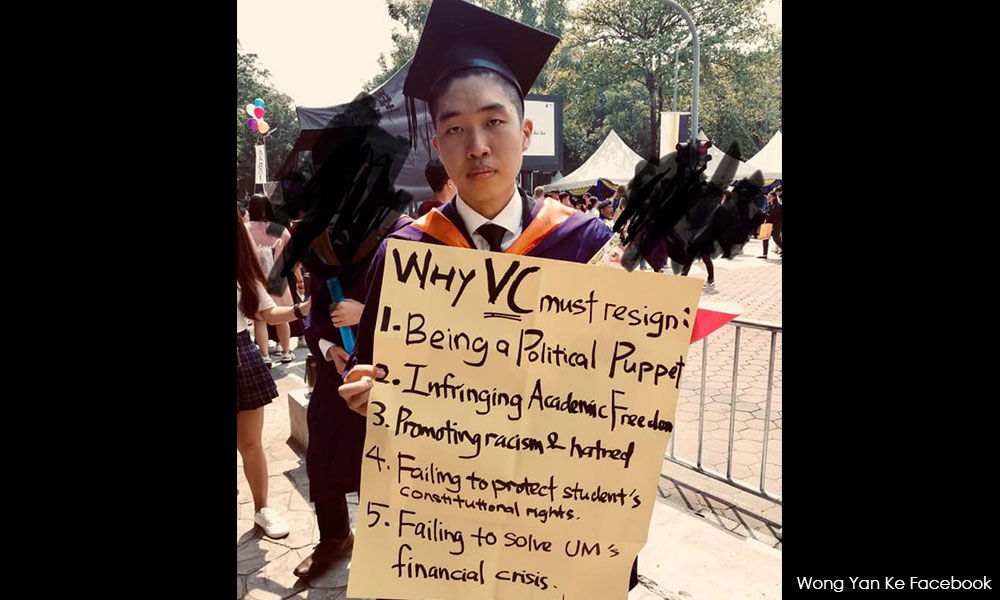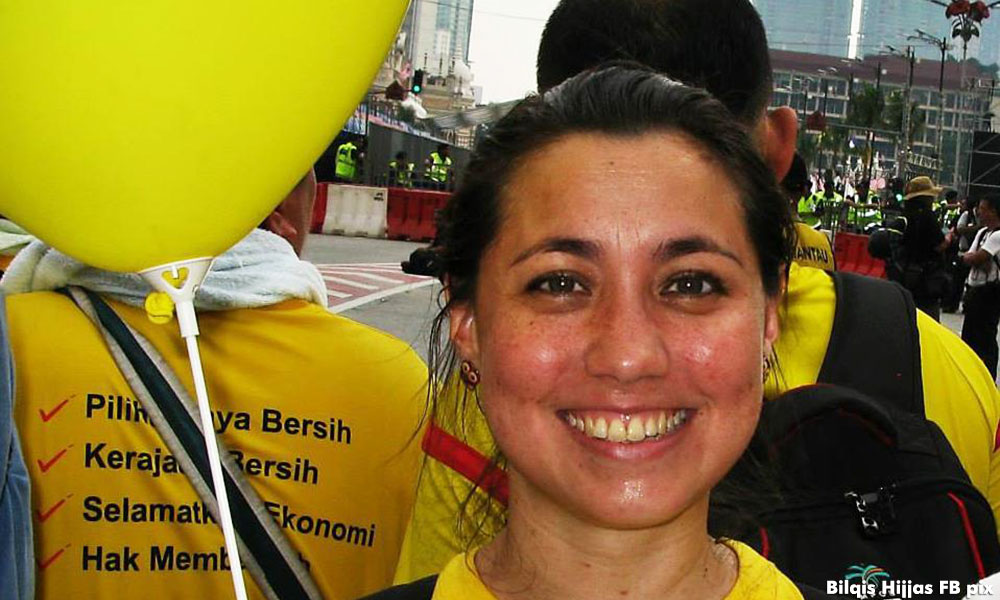
The only powerful people that we should trust in this country are… ourselves. We the rakyat, not the politicians, are the only real guarantee that a Better Malaysia can emerge.
Change is about power. We subcontract our power out to the politicians once every five years (during elections), and then surrender our fates to them… hoping they will do the right thing. But in my previous column, I wrote about how politicians may be “influenced” by rich tycoons’ “donations”, which then “distracts” them from their original promises.
It’s only during by-elections that suddenly, people power becomes important again, with sudden outpourings of goodies from the political heavens above. It’s almost a black joke that the best way for an elected MP to get things done real quick for his area is to, well, pass away. Ah… if only there were a by-election (or should it be called “buy election”?) every month!
But there are other, less macabre, ways to keep up the pressure on the politicians. Before that, we have to ask, what do we, the rakyat, want? How about 10 percent of Pakatan’s promised “one million affordable homes” by 2021? Or fulfilling another manifesto promise to defer PTPTN loan repayments till graduates earn RM4,000?
Now that Tanjung Piai, the southernmost point of mainland Asia, also represents the lowest point of a ruling party’s defeat, this is the best time to push for our agenda. After all, several politicians are suddenly declaring that “we must listen to the people”.
We are tired of hearing the same old excuses that the Pakatan government "lacks money” to fulfil their promises when we see them pushing unnecessary projects such as the Third National Car, the Flying Car and the Kulim International Airport in Kedah (there are already two other international airports within 150km at Penang island and Langkawi).
Whose interests have priority? Is it the people below who are struggling? Or some well-connected politicians and businessmen? The only way we can make sure is to make ourselves heard. More loudly. More often.
Gandhi-style passive resistance
Before thinking about the next big Bersih protest, there are many other smaller actions that are easier to organise. These are all part of the passive, peaceful resistance called civil disobedience, something Gandhi used to great effect, eventually toppling the British Empire in India.

This can be as modest as speaking up in coffee shops or on social media. Never underestimate the power of grumbling, as it can often grow into a roar. Steven Gan, the co-founder of Malaysiakini, recently said, “We should make it our duty to discuss burning issues with our family, friends, workmates, people we meet. And we should make it our duty to counter hate speech...
“Why? Because if we don’t, others are doing it… By not countering them, we allow them to take over the narrative and make it their own. We let them dominate our national conversation.”
Another method of civil disobedience is the simple refusal to cooperate with wrongdoings. This is what Nor Salwani Muhammad, a National Audit Department officer, did in 2016. After the order was given to destroy all 60 copies of the original Auditor-General’s report of the 1MDB scandal, she quietly kept one copy, thus preserving evidence of tampering.
Other principled folks have also leaked evidence of misdeeds (government or corporate) to the media or politicians. This is something that can be done secretly, using Tor internet browsers or even snail mail, with minimal risk to ourselves.
How about social gestures? For example, if we believe that the prime minister has been guilty of moving Malaysia backwards, why stand up (or smile) for him at events? If we grumble about him behind his back, why pretend to respect him when we’re in his presence? Are we hypocrites?
It would be a silently powerful signal if the whole room just refused to rise when he walks in.
Due to their sudden new-found “love” for the Prime Minister, Umno leaders may twist this into an issue of not respecting a sacred leader. But who are they to lecture us when they gave no face to the Raja of Perlis by boycotting the swearing in of the Menteri Besar in May 2018?
Let me repeat that Ministers are public servants, whose salaries are paid by taxpayers. By right, we the people, are the bosses.
So it’s time for us as a nation to grow up from this feudal mentality of kowtowing to them - just as Anthony Loke, on his first day of work, asked Transport Ministry staff not to waste time and resources with excessive ampu bodek (bootlicking) ceremonies. Hopefully, we won’t get to the point like in America when crowds boo-ed Donald Trump at a major baseball game and even chanted “lock him up!”.
Micro and artistic protests

The next step up in civil disobedience is to have micro protests. I salute the courage of Wong Yan Ke (above), who did a one-man demonstration, holding up a hand-drawn sign (during his convocation at the University of Malaya) to decry the highly “intellectual” Vice-Chancellor for co-organising a racist “dignity” congress. While it may not have forced the VC to step down, it shone a glaring spotlight of shame on him.
Other modest protests, including a simple sit-in by Asheeq Ali Sethi Alivi and Siti Nurizzah Tazali in front of the Education Ministry in Sept 2018, eventually forced the minister Maszlee Malik to step down as president of the International Islamic University Malaysia.
The heat generated by these low-key actions also pressured the Ministry to announce that student councils (MPP) at all public universities would be given full freedom to choose their own leadership without interference from the administration.
Micro protests gain even more traction when a dash of artistic creativity is sprinkled on. Graphic artist Fahmi Reza boosted national protests against 1MDB/kleptocracy by publishing his evil clown caricature of Najib, which went viral. (However, it is puzzling why the Pakatan government kept pursuing him in court after the last general elections.)
Another creative protest occurred on Merdeka Day 2015, when dance producer Bilqis Hijjas (below) released yellow balloons marked “Free media,” “Democracy,” and “Justice” to float down onto a function attended by Najib Razak at a shopping mall.
“I felt that it was shameful of us to actually stand there and accept his leadership on Merdeka Day,” she told Awani Review.
“Malaysians tend to give too much respect to VIPs and elected politicians even when they are blatantly in the wrong,” she added. The authorities’ overreaction -- charging her for “insulting behaviour likely to cause a breach of peace” - merely made this little artistic protest even bigger.

Finally, let’s consider another low-risk strategy to pressure politicians - boycotts. The global business, tourism and sporting boycott of South Africa in the 1980s eventually led to the dismantling of racist apartheid policies. More recently, Brunei backtracked on making gay sex punishable by stoning to death after a global outcry and boycotts against the the Sultan’s luxury hotel chain, led by celebrities including Elton John and George Clooney.
We know boycotts can hurt because companies respond to them. For example, when some people called for the boycott of a certain kopitiam franchise supposedly linked to our dear Aunty Rose (of handbag and bling-bling jewellery fame), they had to issue a firm denial of any such connection. And when a hypermarket chain was targetted in the “boycott non-Muslim products” campaign, they quickly listed down the bumiputra products that they had been selling.
So, if Malaysians are not happy with certain politicians, can we boycott businesses linked with them?
In summary, there are many modest methods of civil disobedience to pressure politicians without having to organise big rallies.
Rather than getting disillusioned with our politics and then surrendering, let’s push the system for more reforms. We’ve already done the “impossible” in toppling Barisan Nasional, so we may as well go further.
Remember, the only people who can really bring change are we ourselves.
ANDREW SIA is a veteran journalist and editor who prefers teh tarik kau over tepid English tea. You can add milk, sugar and halia to his drink at tehtarik@gmail.com. - Mkini



No comments:
Post a Comment
Note: Only a member of this blog may post a comment.